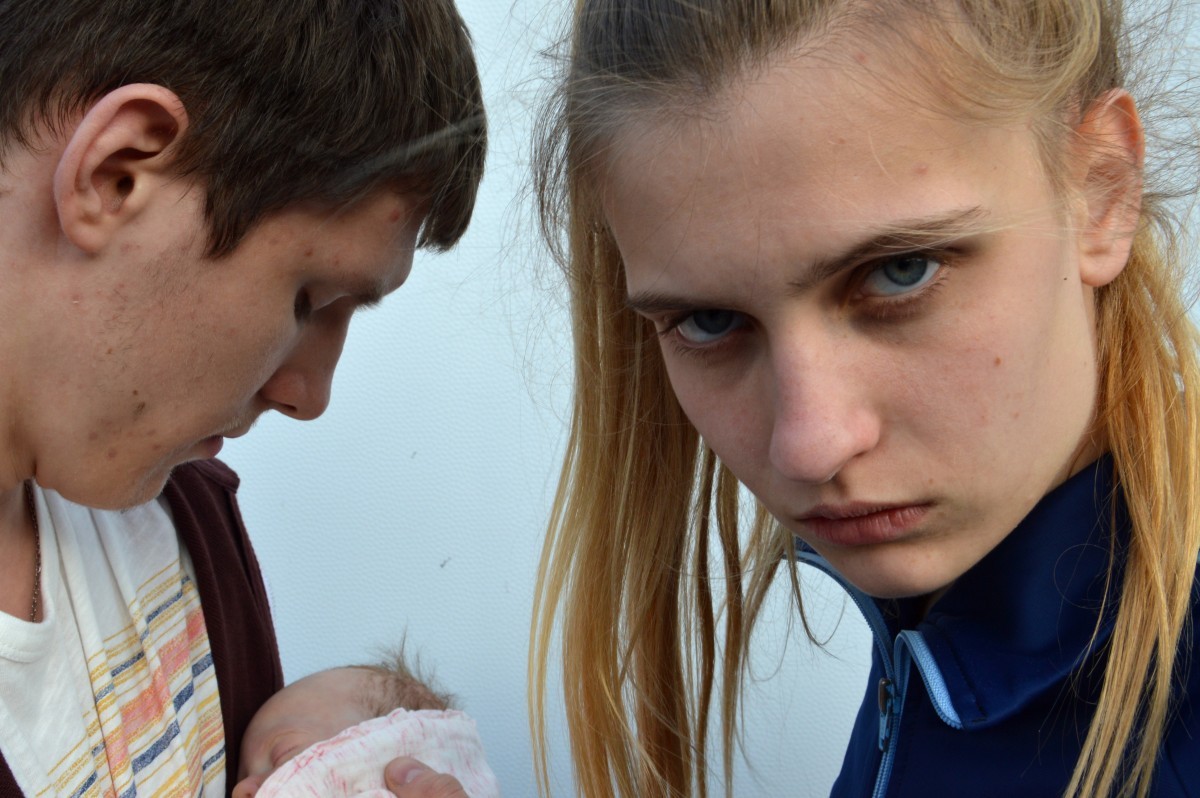Karlovy Vary Film Review: ‘Blossom Valley’
By Jessica Kiang
LOS ANGELES (Variety.com) – Thrumming with the woozy, hangover energy of a strung-out, sleepless night, “Blossom Valley” may sound like a brand of supermarket rosé, but its spirit, as embodied in its female lead, is a lot more punk than that. Hungarian debut director László Csuja finds beauty in his bruised, beer-can aesthetic and gives this small-scale, ostensible social-realist story of restlessness and rootlessness a slightly haunted, fairy-tale edge. It may riff on well-known archetypes — the lovers-on-the-run narrative, the makeshift-family-unit drama, a plotline that is essentially “Raising Arizona” played without the laughs — but this exceptionally well-performed debut is so bravely loyal to its idiosyncratic, misguided characters that it never feels less than fresh.
Laci (László Réti, a Special Olympics skating champion) is a developmentally challenged young man whom we first meet as he’s undergoing a series of tests to determine his mental aptitude. His legal guardian is his uncle, for whom Laci works diligently doing construction and other odd jobs while sharing a room in a workers’ dormitory. Laci is graded at 53% and therefore deemed unable to make decisions for himself, and he is dismayed that he cannot take the test again because “everyone always wants to do better.” It’s only one simple scene, but already Laci’s fundamental decency and desire to improve himself and to please others is palpable.
Those traits are exactly what the other protagonist lacks. We first meet the homeless, morality-free zone that is Bianka (a terrific Bianka Berényi, threatening to give the term “Instagram celebrity, singer and model-turned-actress” unexpected respectability) as she swims topless in a stranger’s backyard pool. Sullen and snarlingly self-possessed Bianka is a screw-up, for sure, but she’s nobody’s screw-up but her own. Shooed away by the returning family, she scuds around aimlessly, playing a shooter game in a neighborhood bar and dancing uninhibitedly to a track played on the radio. (Surprinhly, where we’d perhaps expect this sort of youth-culture slice-of-life to borrow energy from a throbbing score, no music plays in the majority of the film, giving it a quietude that is sometimes melancholic, sometimes menacing.)
Again, in just a quick few scenes we get such a strong sense of who Bianka is that it’s not terribly surprising when she notices a pram left unattended for a moment by a hassled mom, and makes off with it, baby and all. She plays with the little girl for a while, then trundles around trying to convince old boyfriends that she’s their kid, a ploy for which none of them falls. But she encounters Laci, who offers to help her with a diaper change, and as easily as a leaf falls, Bianka and the baby she’s called Laura become part of his small, constrained life. And he will upend everything to provide for them.
It’s an unusual love story, in that there’s no indication they ever become physical lovers. And despite the horrible nature of Bianka’s crime, the presence of a gun, and pursuit by the law and a bunch of ticked-off criminals, it’s not really a thriller either. Instead “Blossom Valley” is the most marginal of redemption stories, tracking a lyrical interlude in which two fractured lives briefly find an odd sort of stability before Bianka’s blank, impulsive selfishness breaks down enough for her to realize she doesn’t deserve the contentment she’s stolen.
The supple camerawork from cinematographer Gergely Vass captures both the hard edges of these marginalized lives and their occasional moments of grace with subtle handheld flair. Scenes in a tacky, neon-lit karaoke bar are shot with the same kind of buzzy romance as a bucolic sequence in a meadow where Bianka fashions wildflower crowns for herself and the baby. But best of all is the cunningly engineered chemistry between the preternaturally sympathetic Laci and the deeply unlikable, borderline sociopathic Bianka. The fizzle of offbeat connection between the two gives an otherwise slight story its doomy, dreamy, fable-like effect, and its sad little squalling heart.

